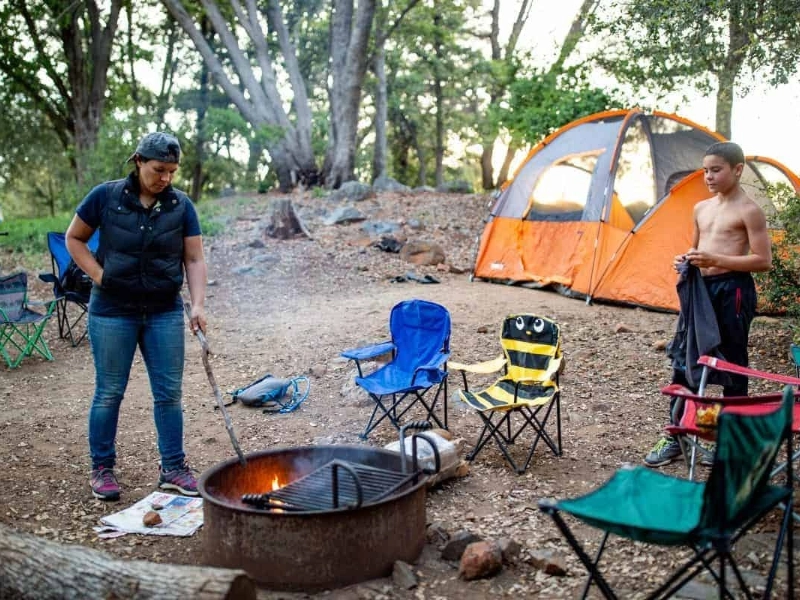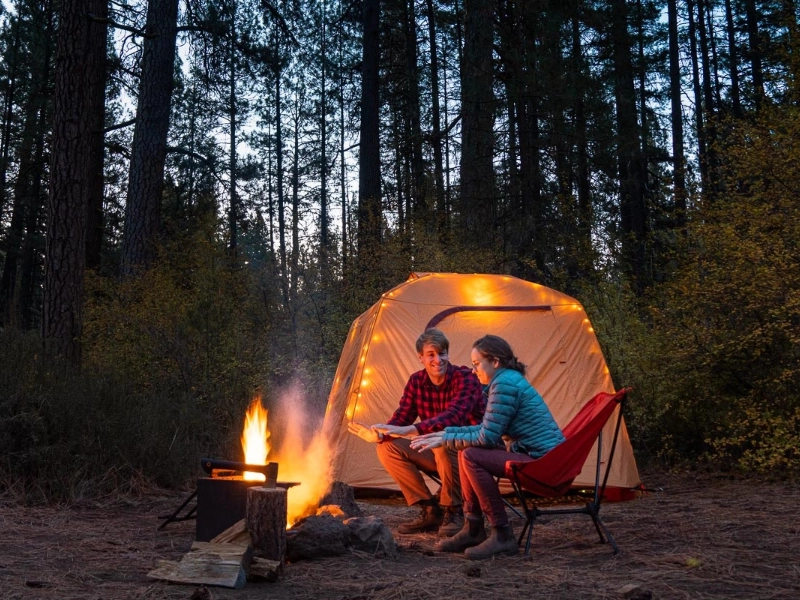Children get to pursue their interests outside of the house. In addition to honing their acting abilities, students can find that theatre and costuming are their passions at camp. In a secure setting, they also learn how to be autonomous. This can aid in preventing the summer slip that many children encounter.

 Kids learn how to handle small issues on their own while at camp. This sets the stage for them to become more independent as they get older.
Additionally, it fosters children's self-assurance and ability to succeed even in the face of imperfection. Youngsters who understand that they are capable of making decisions on their own without parental supervision will be better equipped for the day when they leave for college or the workforce.
Free play is another way that camp promotes independence. Even though it may sound absurd, allowing children to use their imaginations fosters creativity. Additionally, it teaches kids how to communicate with one another, which helps them learn how to settle disputes and negotiate. This kind of extracurricular learning is crucial for youngsters because it stops the summer slip, a period of time when pupils lose some of their academic abilities. This kind of learning is promoted by several camps through STEM and art programmes. Additionally, social-emotional education on values like compassion, honesty, and respect for others are taught in most camps. These lessons can benefit campers for the rest of their life.
Kids learn how to handle small issues on their own while at camp. This sets the stage for them to become more independent as they get older.
Additionally, it fosters children's self-assurance and ability to succeed even in the face of imperfection. Youngsters who understand that they are capable of making decisions on their own without parental supervision will be better equipped for the day when they leave for college or the workforce.
Free play is another way that camp promotes independence. Even though it may sound absurd, allowing children to use their imaginations fosters creativity. Additionally, it teaches kids how to communicate with one another, which helps them learn how to settle disputes and negotiate. This kind of extracurricular learning is crucial for youngsters because it stops the summer slip, a period of time when pupils lose some of their academic abilities. This kind of learning is promoted by several camps through STEM and art programmes. Additionally, social-emotional education on values like compassion, honesty, and respect for others are taught in most camps. These lessons can benefit campers for the rest of their life.
 While schools teach children about socialisation, camps unite children in a community that fosters a respect for diversity in personalities. They also give kids the chance to participate in team activities, which is a skill they'll probably use as adults.
Kids can also develop good behaviours during camp. For instance, overnight camps assist children in developing a pattern that includes a healthy breakfast and restful sleep. During mealtimes, they also foster a sense of community by frequently singing songs together that develop enduring bonds between campers long after camp has ended.
A lot of camps also provide grieving individuals with supportive communities. They can share their experiences with others and get support more easily if they feel validated and connected to this group. Studies indicate that a feeling of inclusion is especially crucial for people from varied backgrounds.
While schools teach children about socialisation, camps unite children in a community that fosters a respect for diversity in personalities. They also give kids the chance to participate in team activities, which is a skill they'll probably use as adults.
Kids can also develop good behaviours during camp. For instance, overnight camps assist children in developing a pattern that includes a healthy breakfast and restful sleep. During mealtimes, they also foster a sense of community by frequently singing songs together that develop enduring bonds between campers long after camp has ended.
A lot of camps also provide grieving individuals with supportive communities. They can share their experiences with others and get support more easily if they feel validated and connected to this group. Studies indicate that a feeling of inclusion is especially crucial for people from varied backgrounds.
 Children at camp are encouraged to cultivate resilience, or an ingrained confidence in their own capacity to overcome obstacles. Camps achieve this through teaching children coping mechanisms and exposing them to moderate levels of stress—a process known as "immunisation against adversity."
Children can learn from their errors and realise that not everyone is exceptional at every activity or challenge, for instance, during camp. Additionally, it helps kids learn how to get along with others who are different from them, which can help fight against feelings of loneliness that lead to substance addiction and bad habits at home.
In addition, camps foster physical resilience in children by providing them with all the wholesome food they require, exercise, fresh air, and a balance of organised and unstructured time. When all these protective characteristics are integrated, a child gains resilience, strength, and independence as well as constructive conflict-resolution abilities. They're ready for anything life throws at them, including college and the workforce.
Children at camp are encouraged to cultivate resilience, or an ingrained confidence in their own capacity to overcome obstacles. Camps achieve this through teaching children coping mechanisms and exposing them to moderate levels of stress—a process known as "immunisation against adversity."
Children can learn from their errors and realise that not everyone is exceptional at every activity or challenge, for instance, during camp. Additionally, it helps kids learn how to get along with others who are different from them, which can help fight against feelings of loneliness that lead to substance addiction and bad habits at home.
In addition, camps foster physical resilience in children by providing them with all the wholesome food they require, exercise, fresh air, and a balance of organised and unstructured time. When all these protective characteristics are integrated, a child gains resilience, strength, and independence as well as constructive conflict-resolution abilities. They're ready for anything life throws at them, including college and the workforce.